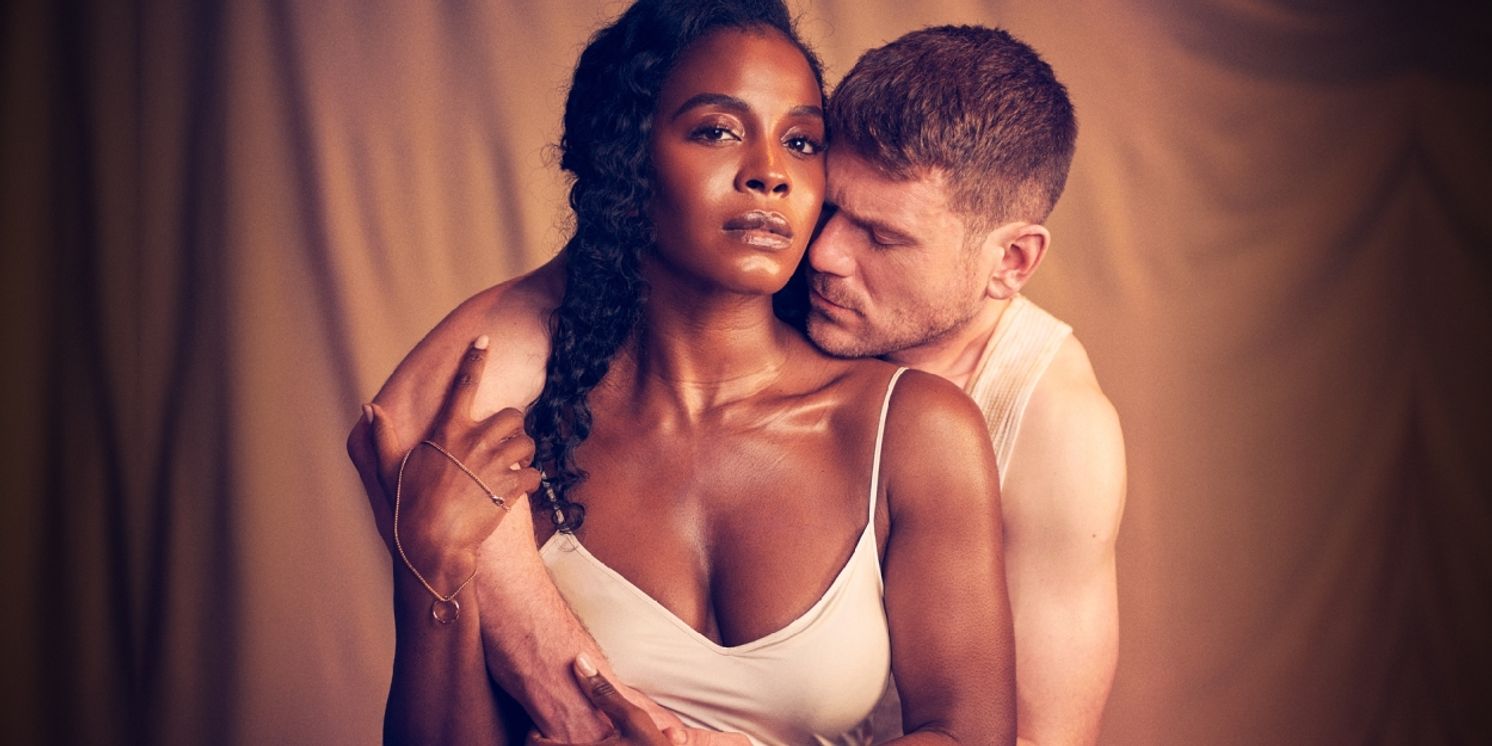Review: WEDDING BAND, Lyric Hammersmith
A superb revival of a lesser known American classic.

![]() Interracial marriage has been legal in the United States for less than six decades. To put it into perspective, sliced bread was first sold forty years earlier. Set in 1918 South Carolina, Wedding Band is a blistering portrayal of unjust laws and discrimination, of conscious and unconscious bias, of finding love inside hopeless prejudice. Alice Childress’ American classic describes a Deep South riddled with hatred and stigma, a picture that’s uncomfortably close to a certain party’s opinions and that, sixty years after its premiere and more than a century after its setting, remains unfortunately topical. A white baker and a black seamstress attempt to defy public opinion in this sombre drama.
Interracial marriage has been legal in the United States for less than six decades. To put it into perspective, sliced bread was first sold forty years earlier. Set in 1918 South Carolina, Wedding Band is a blistering portrayal of unjust laws and discrimination, of conscious and unconscious bias, of finding love inside hopeless prejudice. Alice Childress’ American classic describes a Deep South riddled with hatred and stigma, a picture that’s uncomfortably close to a certain party’s opinions and that, sixty years after its premiere and more than a century after its setting, remains unfortunately topical. A white baker and a black seamstress attempt to defy public opinion in this sombre drama.
It’s a surprising piece of theatre. A smoother, somehow sweeter Tennessee Williams, while harrowing in subject and story, it’s sneakily humorous. Monique Touko directs the first major UK revival with a modern pace. She anchors the material to its context, pointing at it with flair and raising it to a cautionary tale of a past that might just be our future. It instigates an intense conversation on inter-racial racism and white supremacy. Julia resents Herman’s backhanded comments directed at “her people” while he not-so-subconsciously strings her along in fear instead of stepping up.
%20Mark%20Senior.jpg?format=auto&width=1400)
He blames everything but himself or the system, hailing Julia as “not like the others”. When Julia moves into a different accommodation, the women she meets are equally suspicious and wary of her beau, but it’s when we meet Herman’s family later on that it all kicks off. His mother’s spiteful, unabashed viciousness is difficult to witness. Let it serve as a reminder that crowds outside the liberal theatre scene still lean that way. “I’d rather be dead than disgraced,” says the good Christian who’s willing to let her son die of influenza rather than call a doctor to a black neighbourhood. It’s a lot.
Childress’ genius lies in her beautiful weaving of the character arcs. Much of Act One is dedicated to building Julia’s surroundings. She introduces her landlady, Fanny, who relentlessly comes onto Lula’s strapping young son, Nelson (Patrick Martins), an army man whose mum struggles with his role in the safety of a nation who hates him. Then there’s Mattie (Bethan Mary-James) and her daughter Teeta, the former is a wave of restless hope and the latter a stark example of disadvantage.
%20Mark%20Senior.jpg?format=auto&width=1400)
Each of these women feels real and complex, perhaps even more defined than the protagonist. Deborah Ayorinde delivers a powerhouse performance. Reserved and contained at the start, she blossoms into fierce energy in the second-act confrontation with Herman’s mother. It marks another sharply executed turn in her portrayal, making her debut a remarkable feat. She’s joined by actors of equal prowess regardless of the size of their part. Diveen Henry is a queen of physical language as Lula: all it takes is a tilt of the head for her to shake the stage.
The piece reaches its boiling point right at the end of the first act, before bubbling over and exploding in the second. Poppy Gilbert steals the show as the demure, hateful, and haughty Annabelle. She is the product of her social environment. Herman’s sister was, after all, taught by horrifying example by her heinous mother Thelma, Geraldine Alexander in glorious, terrifying form. Herman blames ignorance for his mother’s shortcomings, but it doesn’t take the mention of the Ku Klux Klan to persuade us it’s not just oblivion to blame. David Walmsley completed the main cast as Herman. Commanding and sturdy, he’s exceptionally white-manly in his bravado.
%20Mark%20Senior%20(2).jpg?format=auto&width=1400)
Touko makes a decisive aesthetic choice, toying with hues that reflect the sweltering heat of summer in the Southern States. Quite a bit of fan-waving from the ladies combines with the earthy tones and figurative segregation of Paul Wills’ designs. Chicken wire fence cages the actors into the different rooms, setting up an immediate visual vocabulary for the play. Elena Peña moves the action from space to space with slight sound effects while Shiloh Coke writes a hearty score that accompanies many scene changes.
Touko takes Childress’ tight, slender dialogue and arranges it with cohesion and precise artistic vision. The only weakness, if we can call it that, in an otherwise thoroughly solid production is the ending, which doesn’t fully fit the general observable language. While it might mirror Julia’s chaotic state of mind, it comes off as very abstract while the rest is largely practical. As we wind down to a bitter denouement, the company strips the set, leaving next to nothing. The allegory shifts the tone completely, twisting the style and removing it from immediacy. It might be a lightly perplexing moment, but it leaves the audience with an excellent last image. All in all, it stays an accomplished, openly political project that should be on everyone’s radar.
Wedding Band: A Love Hate Story in Black and White runs at the Lyric Hammersmith until 29 June.
Photo credit: Mark Senior
Reader Reviews
Videos

